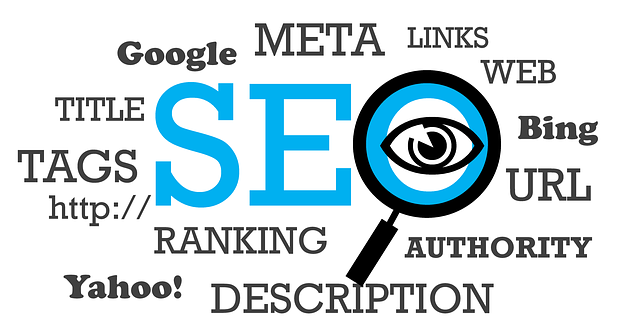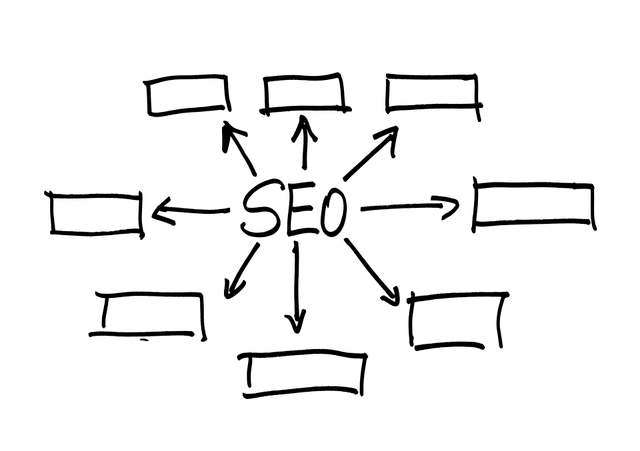In the competitive e-commerce landscape, Search Engine Optimization (SEO) is a powerful tool to attract customers and outshine competitors. By implementing effective SEO tips focused on ranking higher in search results, businesses can enhance online visibility and drive sales. These include optimizing product details, website speed, mobile responsiveness, navigation structure, customer reviews, backlinks, and structured data markup. Keyword research, particularly targeting long-tail keywords, improves SEO rankings and conversion rates. Optimizing title tags, meta descriptions, and crafting high-quality product content also significantly boosts search engine visibility. A seamless user experience, including fast loading times and mobile responsiveness, encourages engagement and signals search engines of valuable content. Building quality backlinks from reputable sources is another powerful SEO tip for higher rankings. Merging online and offline experiences through local SEO helps attract nearby customers. Finally, measuring performance using tools like Google Analytics allows businesses to make data-driven decisions and continually improve their SEO strategies.
E-commerce websites are the digital storefronts of today’s businesses, but simply having an online presence isn’t enough. SEO for e-commerce is crucial to attract organic traffic and drive sales. This comprehensive guide offers SEO tips for ranking higher on search engines, covering everything from understanding the basics of e-commerce SEO to leveraging high-quality product content, optimizing on-page elements, building quality backlinks, and measuring performance. By mastering these strategies, online stores can boost their visibility and attract more customers.
Understanding E-commerce SEO: The Basics

In the dynamic landscape of e-commerce, understanding Search Engine Optimization (SEO) is paramount to driving organic traffic and boosting sales. E-commerce SEO revolves around optimizing your website to rank higher in search engine results pages (SERPs), making it easier for potential customers to discover your products or services. The basics involve a strategic combination of keyword research, high-quality content creation, user experience enhancement, and technical optimizations.
By implementing effective SEO tips for ranking higher, e-commerce businesses can attract more qualified leads and increase their online visibility. This includes optimizing product titles and descriptions with relevant keywords, ensuring fast loading times, improving mobile responsiveness, and creating an intuitive site navigation structure. Additionally, leveraging customer reviews, building quality backlinks, and utilizing structured data markup can significantly enhance your website’s SEO performance in a highly competitive digital marketplace.
Keyword Research for Product-Centric Websites

Keyword research is a crucial step in optimizing your e-commerce website for search engines, especially for product-centric sites. The focus here should be on understanding what products or services your target audience is actively searching for. By identifying relevant keywords and phrases, you can ensure that your website appears higher in search results, attracting more potential customers.
When conducting keyword research, consider using tools to analyze search volume, competition, and user intent. Targeting long-tail keywords specific to your products can significantly improve your SEO tips for ranking higher. These are often less competitive and more likely to convert, as they indicate a clear intent from users who know exactly what they’re looking for.
Optimizing On-Page Elements: Title Tags & Meta Descriptions

When it comes to SEO tips for ranking higher, optimizing on-page elements like title tags and meta descriptions is a crucial step. These elements serve as a website’s first impression to search engines, playing a significant role in determining visibility and click-through rates. A well-crafted title tag should accurately represent the content while incorporating relevant keywords naturally. For instance, if you sell organic skincare products, your title tag might include phrases like “Organic Skincare Products” or “Natural Beauty Solutions.”
Meta descriptions provide an opportunity to craft a compelling snippet that appears below your link in search results. They should entice users to click while also including targeted keywords. Instead of simply stating what products you offer, meta descriptions can highlight unique selling points or special offers. For example, “Discover our Certified Organic Collection – Luxurious, Cruelty-Free Skincare for Every Skin Type.” By focusing on these elements, e-commerce sites can enhance their SEO and attract more potential customers.
Leveraging High-Quality Product Content

High-quality product content is a powerful tool in any e-commerce strategy, especially when it comes to boosting your website’s SEO. Crafting detailed and engaging descriptions for each product on your site can significantly impact your online visibility. When search engines crawl through millions of web pages, rich, informative content helps them understand the context and purpose of your products, leading to higher rankings in search results.
Focus on creating unique, well-researched, and compelling copy that goes beyond the basics. Include relevant keywords naturally, ensuring each product page offers a comprehensive guide to what sets your items apart. By providing valuable insights, you not only attract potential customers but also give search engines the content they need to recognize your site as an authority in your industry, which are key SEO tips for ranking higher.
The Role of User Experience in E-commerce SEO

A seamless user experience is a cornerstone of successful e-commerce SEO strategies. When customers navigate your website effortlessly, they’re more likely to explore products, make purchases, and leave positive reviews, all of which signal to search engines that your site offers valuable content. Implement clear menu structures, fast loading times, mobile responsiveness, and intuitive search functions to encourage user engagement and lower bounce rates. Remember, a well-designed user experience not only enhances customer satisfaction but also serves as a powerful SEO tip for ranking higher in search results.
By prioritizing user experience, you’re essentially giving search engines the green light to prioritize your e-commerce site. This can lead to improved organic visibility and traffic, ultimately driving sales growth. Focus on creating a platform that invites exploration, facilitates easy purchases, and fosters a sense of community—all while ensuring it loads quickly and looks great on every device. These SEO tips for ranking higher are not just about optimizing behind the scenes; they’re about crafting an experience that keeps customers coming back.
Building Quality Backlinks for Online Stores

Building quality backlinks is a crucial SEO tip for e-commerce websites aiming to rank higher. These links, which direct users and search engines from reputable external sites to your online store, hold immense weight in determining your site’s authority and visibility. Focus on acquiring backlinks from high-quality, relevant sources such as industry leaders, popular blogs, and well-respected news outlets. Guest blogging, creating shareable content like infographics or research studies, and offering valuable resources that naturally attract links are effective strategies to achieve this.
Engaging in these practices not only enhances your website’s SEO but also increases brand exposure and drives targeted traffic. Remember, the goal is to earn backlinks from sites that align with your niche and have a high domain authority. This ensures that your efforts contribute positively to your search engine rankings, making your e-commerce store more visible and attractive to potential customers.
Utilizing Local SEO for Brick-and-Mortar Integration

In today’s digital era, integrating online and offline experiences is crucial for e-commerce success. Local SEO plays a pivotal role in bridging this gap, especially for brick-and-mortar businesses. By optimizing your website for local search, you can attract customers who are nearby and actively searching for products or services like yours. Start with claiming and verifying your Google Business Profile to ensure your business appears accurately and prominently in local search results.
Next, implement location keywords naturally throughout your website’s content. These should reflect the areas where your physical store is located, as well as related terms that potential customers might use when searching for nearby businesses. Additionally, encourage customer reviews as they not only enhance your site’s credibility but also provide valuable insights into what makes your brand stand out locally. This data can be used to refine your marketing strategies and SEO tips for ranking higher in both local and general searches.
Measuring and Analyzing E-commerce SEO Performance

Measuring and analyzing e-commerce SEO performance is a crucial step in understanding what’s working and what needs improvement. By utilizing tools like Google Analytics and Search Console, business owners can track key metrics such as organic traffic, click-through rates (CTRs), conversion rates, and average order value. These insights enable data-driven decisions to optimize content, refine product listings, and enhance user experience.
Implementing effective SEO tips for ranking higher involves a multi-faceted approach. Regularly updating product descriptions with relevant keywords, optimizing images for better visibility, and creating high-quality blog content that engages customers are all essential strategies. Additionally, leveraging customer reviews and ratings boosts credibility while ensuring that website loading speeds are optimized to reduce bounce rates.
